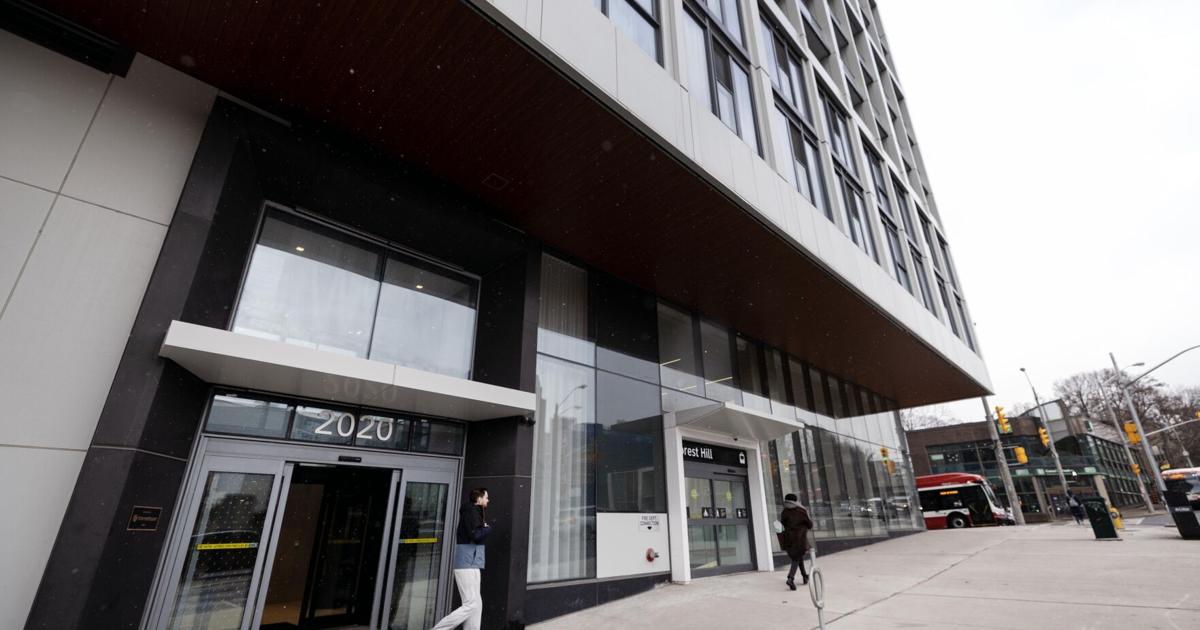Developers and at least one major bank are turning to blanket appraisals in an effort to save millions of dollars on preconstruction projects. But while they can help preconstruction buyers close on their properties, these appraisals can hurt purchasers in the long run, experts warn.
A blanket appraisal is when a lender uses the value of a preconstruction property at the time a buyer entered a purchase agreement rather than the updated value at the time the property closes.
The practice isn’t new, but has ramped up over the last year as a staggering number of preconstruction purchasers default because many bought at the pandemic peak in 2021 and 2022. Since then, prices have fallen substantially while interest rates have shot up. If a property is appraised for below what the buyer agreed to purchase it for, they must come up with the shortfall or risk defaulting and potentially being sued by the developer.
However, taking a blanket appraisal means the buyer has a mortgage worth more than the value of the home, meaning they’ll be underwater and have no equity in the property.
Blanket appraisals are being advertised by developers as beneficial for the purchaser, but they ultimately help the lender, said John Pasalis, president of real estate brokerage Realosophy. “Lenders have financed the construction loan, so if there are too many defaults the entire project can’t close; the whole project falls apart,” Pasalis said, speaking generally.
That means millions of dollars are on the line for lenders, giving them strong incentive to ensure purchasers close on their units, he added.
Blanket appraisals are being offered by the Royal Bank of Canada (RBC) for select preconstruction projects coming to market as prices for comparable units have dropped considerably over the last few years, according to several industry sources and promotional material seen by the Star.
Cheryl Brean, director, communications of personal banking and commercial banking at RBC, said the bank is committed to “responsible lending practices,” using property valuation methods in compliance with their regulatory requirements.
“Our property valuation methods, including appraisals on pre-construction properties, are based on a number of market conditions, including those at the time a financing decision on a mortgage application is made. We continuously monitor changing market conditions and will seek reassessment of a property where circumstances warrant,” she said in an email to the Star.
Sakmet Developments, a Toronto construction company, has partnered with RBC to provide preconstruction buyers “blanket appraisal protection” for their 41 townhomes at their Manors on Mayfield site in Whitby. It’s a way of “giving homebuyers the confidence they need in uncertain times,” said the company’s executive manager Andrea Dixon, in an email.
“Our Manors on Mayfield project has been approved for a blanket appraisal, ensuring a smooth and successful closing,” she said, adding that buyers can close without needing an additional appraisal.
Dixon added that Sakmet Developments has taken “proactive steps” to ensure homeowners won’t face “unexpected costs at closing due to factors beyond their control.” She shared with the Star a brochure from RBC advertising the program, which promised “once approved you stay approved, no requalification or reappraisal required.”
Units sold during the pandemic peak, often priced between $1,200 and $1,600 per square foot, are now appraising at values approximately 10 per cent to 30 per cent lower than their original purchase prices, said Mushtaq Khan, president of Toronto-based real estate appraiser, Alpha Appraisals.
“In my practice, I’ve observed numerous buyers grappling with these appraisal shortfalls,” he said, adding that, in some instances, buyers have considered insolvency or bankruptcy to address their financial obligations.
A Toronto Star investigation found at least 130 lawsuits where two developers sued purchasers unable to close on their units across five Toronto towers. At least one buyer who the Star spoke to for this story said they were offered a blanket appraisal.
In March 2024, CentreCourt held a realtor appreciation event, where they advertised an exclusive full project blanket appraisal with RBC across five condo towers: The Forest Hill, 55 Mercer Residences, PRIME Condos, 199 Church Condos, and WestLine Condos, according to social media posts from a presenter at the event.
CentreCourt did not respond to the Star’s requests for comment.
“Essentially the bank is lending out the money on a fake value, to reduce the exposure that they have,” said Alex Pang, a B.C.-based mortgage broker, also speaking generally.
“Developers have their own requirements, they have their own mortgages. We’re seeing some banks do blanket appraisals because the cracks are showing and there’s a lot of exposure across many players in the market.”
Rather than risk the “whole house of cards collapsing,” the bank chooses blanket appraisals.
“It’s almost like a way for the bank to prop up the real estate market,” he added.
Blanket appraisals have also been promised as part of ads for recent assignment sales in GTA buy and sell Facebook groups.
“HUGE LOSS TOTAL $300,000” reads a post for a one-bedroom-plus-den at a CentreCourt building that offered an RBC blanket appraisal, accompanied by red siren emojis, several exclamation marks, and a skull and cross bone emoji.
In theory a blanket appraisal could give an assignment buyer peace of mind that the unit will not appraise at lower than what they agree to pay for it, one realtor told the Star, although it’s not exactly clear how this would work.
At the end of day, purchasers only have a few options available to them, said Pasalis — pay more upfront or allow a “slow painful bleeding of cash,” as the blanket appraisal has the buyer paying a bigger mortgage for a home they have no equity in.
As values continue to decline, lenders will be less inclined to offer blanket appraisals as the risk is too great.
“Maybe banks would give $1 million mortgage to an investor who bought a pre-construction condo for $1 million, even though that unit is only worth $800,000,” Pasalis said. “But would they give that same mortgage if the unit is only worth $700,000? Probably not.”
However, the broader economic implication if projects fail to close is widespread panic in the market.
“If a project collapses or builders distress sell at significant discounts it could lead to a price collapse in condo projects leading to fear and panic with consumers, which is what banks are trying to avoid,” he said.



